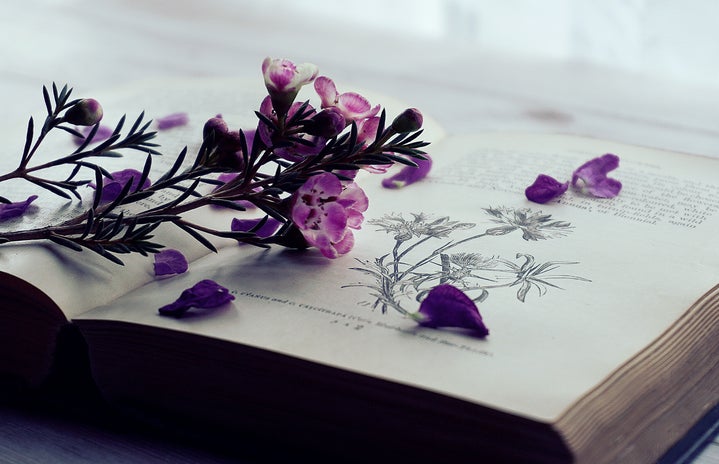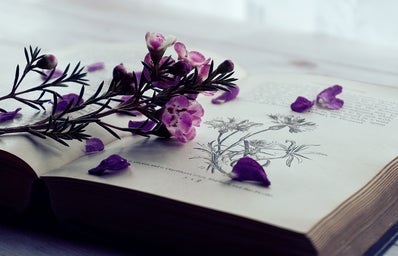From the debut author Elaine Roth comes a hopeful and heartfelt story about a young widow who uncovers the magic of everyday life and the power of second chances.
“The Midnight Garden” follows Hope, who finds herself reeling from the loss of her husband in more ways than one. First a young wife and now a grieving widow, she is now fodder for never-ending town gossip. When Hope meets Will, a screenwriter back in town to run his family’s inn, she finds another resident oddball. Like her, Will has been navigating a loss of his own. As Hope falls for Will, she seeks out another enigma in town: Maeve, an eccentric woman who makes healing teas and communes with the dead. Some of the townspeople think she’s a grifter, or a fake. Will, too, is skeptical.
Hope yearns for closure and forgiveness, seeing in Maeve the chance to trust herself again, and in Will a chance to rediscover enchantment in the world around her and the courage to build a bigger life than she ever thought possible.
Elaine Roth is a writer, parent, young widow and comprehensively certified Pilates instructor. Her written work has appeared on Refinery29, Well+Good, Insider, HuffPost, and Scary Mommy, among others. She’s grateful for the chance to share her writing with others and for the chance to make a little light out of things that are often too dark. She and her children live in Morris County, New Jersey.
Given the book’s subject matter, I wanted to ask questions relating to Elaine’s own grief and how it is linked to Hope’s when she was writing this book as well as the concept of magic and her healing journey through her publishing journey.
What made you decide to include different concepts of magic in your debut?
I decided to include different concepts of magic for a few reasons. One, I love books with a hint of magic (or even a lot of magic, depending on the book), and one of my favorite authors is Alice Hoffman, who incorporates magic so well. I was inspired by her. The bigger reason is that I wanted to find magic in my own world. After my husband died, I kept looking for signs–a little magic–and I was able to find that, sometimes in a rainbow, sometimes in a bluebird outside my window. I wanted to share the experience in some way with others.
Your writing is more well-known in journalism, so what made you decide to publish a book and make your way into the book publishing industry?
I have always wanted to be a novelist, and I have always wanted to see my name on the cover of a book. This is a dream come true for me. I never expected to be an essayist and parenting writer–but the opportunity presented itself and it felt right. Writing articles truly enriched my life and informed my writing in a way that no doubt helped lead me to this point (a book on the verge of publication!) I hope I can always find a way to balance the two kinds of writing.
Your book has symbolism behind tea and birds. If you could choose a tea or bird to describe each of the characters, what would it be and why?
Hope would be a bluebird–because it’s a symbol of hope, love and positivity…and an important symbol throughout her journey.
Will is a red cardinal, which symbolizes loyalty and hope. A medium once told me to tell a family member of mine that her grandfather was sending her red cardinals as signs that he was still with her. I can see Will being that kind of grandfather too–always loyal, always protective.
Maeve is a hummingbird–small but mighty, significant and rare. Hummingbirds are often associated with good luck and joy and when Maeve is at her best, that’s what she wants to bring to the world.
What did you learn about your grief when writing this book?
What most came through for me while writing this book is the idea that grief can convince you it’s better to live a smaller life because it’s safer. Anyone who’s suffered a traumatic loss is acutely aware that another big loss could happen, that they could lose it all again–that the next shoe could drop at any moment. The idea is terrifying. That concept had been swirling around my thoughts but it wasn’t until I gave it a voice through Hope that I truly realized how much my grief looked like fear of losing it all again. Writing grief through Hope’s eyes and then through Will’s and the other characters’ also was another way of putting words to an idea I knew but hadn’t articulated–how grief affects everyone in different ways, even grief over the same loss.
Is there anything you want to emphasize about your novel to an audience who may not be able to personally relate to Hope’s grief? What about your book do you think will appeal to a mass audience?
Hope–like me–is part of a very exclusive club with a high cost of entry: the young widow’s club. While young widow grief is unique, it’s also universal. At its core, grief is grief. I think the audience will relate with Hope’s grief because at some point in our lives, we all know grief, we all lose something that feels too big to lose, and we all have to make the choice to live our fullest lives after that loss. It’s not an easy choice–for Hope or anyone. Hope is a lesson in realizing that with love comes the possibility of loss, and it’s worth the risk; she’s a lesson in seeing that the bravest thing we can do is to choose to live life to the fullest, despite knowing all the ways it can go wrong. These are idea we all can relate to, even if we’re not members of the young widow club.
Thank you so much Elaine for answering my questions. After discovering your own personal connection to the grief found in “The Midnight Garden,” I knew I wanted this Author Spotlight to be a bit more personal to mimic how important “The Midnight Garden” is to you as a widow and woman.
I’d also like to thank Stephanie Elliot from MB Communications for sending me a finished copy and an advanced reader’s copy of “The Midnight Garden” and offering me the chance to interview Elaine Roth about such as personal book. Looking forward to seeing what other authors you send my way to write about and discovering personal connections to them through their writing.


